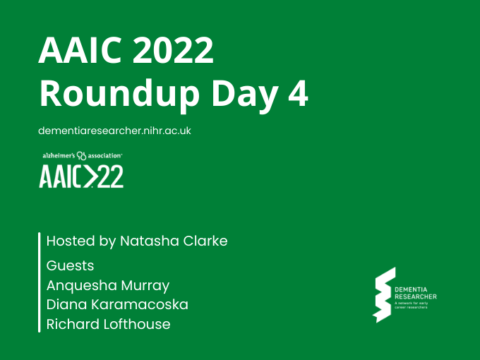
Dr Natasha Clarke
Name:
Dr Natasha Clarke
Job title:
Postdoctoral Research Associate
Place of work / study:
Centre de recherche de l’Institut universitaire de gériatrie de Montréal
Area of Research:
I research brain functional connectivity as a biomarker of Alzheimer’s disease and other disorders.
How is your work funded?
I’m funded by IVADO (Institut de valorisation des données), a Québec-wide collaborative institute in the field of digital intelligence – https://ivado.ca/.
Tell us a little about yourself:
I studied psychology at Cardiff University, got my master’s in clinical psychology from Swansea University, and then worked in research and psychology roles in the charity sector and NHS before starting my PhD with Professor Peter Garrard at St George’s University, London. For my thesis I used natural language processing (a branch of computer science) and machine learning to predict Alzheimer’s and mild cognitive impairment from speech. I recently moved to Montréal, where I’m supervised by Professor Pierre Bellec. I’ve always been fascinated by the insights into the brain neuroimaging can give us, so wanted to learn some of those techniques next. I’m passionate about science communication and believe as researchers we should make our work open and accessible to the public. In my free time I do Jiu Jitsu!
Tell us a fun fact about yourself:
I love music, and one of my highlights of this year so far was seeing Queen and Adam Lambert live.
Why did you choose to work in dementia?
As a psychologist at a memory clinic, I saw first-hand the devastating effect of dementia on individuals and their families, but I also saw how much of a difference research could make. Not just in terms of evidence-based practice and improving treatments and care for people, but often those taking part in studies really gained something from it and felt they were contributing to future discoveries. I wanted to be a part of that, and of course hope to contribute myself.
What single piece of advice would you give to an early career researcher?
If you had asked me this during my PhD I might have said “say yes to all the opportunities!”. Now, as an older (and wiser?) postdoc, my advice is don’t say yes to all the opportunities. The ‘FOMO’ (fear of missing out) can be strong, but there are only so many hours in a day!
What book are you reading right now? Would you recommend it?
I’m reading Station Eleven by Emily St. John Mandel, and I highly recommend it! Set in post-apocalyptic Canada, it follows multiple inter-weaved timelines, and people linked by a single event that happened a few days before a global pandemic hit. (Written pre-COVID-19, it is a little close to home now…)

 Print This Post
Print This Post